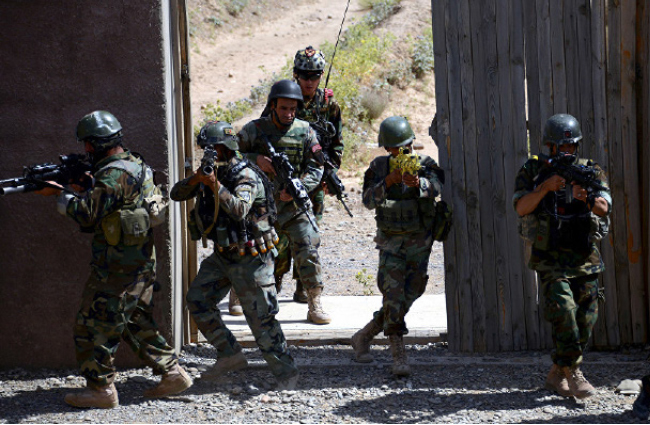Recently, The US Department of Defence has expressed that the progress of Afghan National Defence and Security Forces (ANDSF) had been unstable, highlighting that although they have denied the insurgency any strategic successes, they have failed to reclaim the territory they lost to the Taliban. According to Pentagon, Afghan forces are also most often unsuccessful in holding areas captured from the militants. The recent Pentagon report beset with questions about the capabilities of Afghan National Army (ANA) indicates US failure because it has spent billions of dollars on the force over the past decade and half, yet the country has not been able to create a capable Afghan force.
Also during a briefing in the United Nations Security Council, the Secretary-General’s Special Representative for Afghanistan Tadamichi Yamamoto said this year thousands of Afghans have been killed in the conflict and that “such human suffering and tragedy is unacceptable.” He said the conflict also erodes the living conditions of people and deprives the country’s opportunities for development and growth. He pointed out that there has been a 50 per cent decrease in economic investment, and that financial resources spent on the conflict could be utilized for the economic prosperity of Afghanistan. Yamamoto once again called on the Taliban to enter direct talks with the Afghan government without preconditions. “We all know that the conflict in Afghanistan has no military solution,” he said. '
Considering ground realities in Afghanistan and these expressions raising questions if we really failed against Terrorist or retreating? What was wrong in past 15 years fights if we failed? It is right that corruption and partisan treatment at the leadership level of Afghan forces is a barrier to having a strong military force, was it really all of the reasons? Was there enough attention and effort to eliminate terrorist from Afghanistan? In fact, there are dozens of such questions which remained unanswered to Afghan citizens.
Apparently, the main objective of foreign assistance with Afghanistan was to build an Afghan forces able to defend the country without foreign support and prevent Afghanistan from turning into a terror haven once again; however, the past two years showed the goal is yet to be accomplished as Afghan forces are grappling with enormous challenges, from training to funding and equipment. They even suffer heavy casualties due to logistic problems.
Backing to the past, it was a decade and half ago that The United States of America invaded Afghanistan after Al-Qaeda suicide bomber targeted the World Trade Centre in New York. On Contrary to their nature, the people of Afghanistan who are viewed as the destroyers of empires welcomed Americans for deposing the Taliban and their slogans. Afghans accepted the UN Security Council Resolution on Afghanistan, and joined the democratic process with the hope of a bright future. Afghans, which were tired of war and oppression, expected that the US involvement in Afghanistan would liberate them from the evil of terrorists, while also helping them have a prosperous life. Afghan side also had vested interests in the goals America was pretending for its presence in Afghanistan. The fight against terrorism and narcotics, and the rehabilitation of infrastructure destroyed by war were the seeming international community goals in Afghanistan. These were the very issues that Afghans also wished, and thought to be in their interests. Afghans, and even according to former diplomats, the Taliban did not want their country to be used against other countries. Furthermore, Afghans traditionally do not like the illegal drugs, and view opium as haram (forbidden in Islam) so that is why the US motto of poppy eradication was welcome. The renovation of infrastructure ruined in wars, and becoming an economically self-sufficient nation were the wishes of the war-stricken Afghans, which encouraged them to accept the American presence in their country.
Consequently, the American presence lasted for 15 years under these three slogans and commitments: counter terrorism, narcotics and reconstruction of war-torn infrastructure while there is no tangible and fundamental improvement at all. Afghanistan is more insecure than it was during the initial years of the US-led international coalition, and there are more terrorist groups active than ever. The cultivation of narcotics has increased by many folds, and Afghanistan is considered as the world’s biggest producer of drugs. Although there is a little progress made in economic infrastructure and welfare, it is not fundamental because more than half of people are sunk in poverty and millions are involved in additions. On the whole, growing Insecurity, poverty, refugee problems, administrative corruption etc are considered as an achievement of past 15 years. Yes, Afghan people welcomed and will welcome again if international partners act upon the commitments and pursue its interests in Afghanistan through peaceful means.
On the other hand, the government of Afghanistan must understand that the first biggest problem of Afghanistan is insecurity. So, the establishment of a strong independent national military and advanced security system must be the first priority in Afghanistan. This should not necessarily mean that conflicts in Afghanistan have only military solution rather it means that the policy of imploring for peace cannot reach the goal from a weak position. It is really shameful when we hear that our national army is lacking food, clothes or weapons in the battle field.
Home » Opinion » Are we Failing or Retreating?
Are we Failing or Retreating?
| Mohammad Zahir Akbari

